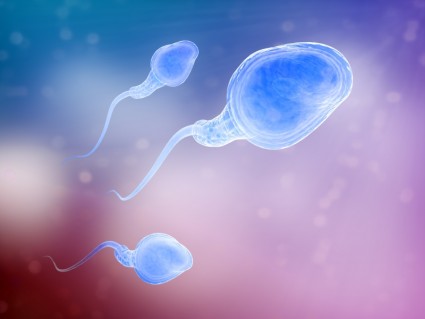
How Long Can Sperm Live Inside The Female Body?
This post contains affiliate links. We will earn a small commission if you purchase something after clicking on the link. Read our affiliate disclosure here.
How Long Alright, ladies, let's get personal. We're going to talk about sperm. Sperm is a vital part of the journey when you make the official "try to conceive" decision. We all know that ovulation is necessary to get pregnant, but sperm plays an equally important role. Women know their bodies intimately when tracking fertility but may overlook the sperm aspect. It's essential to know how long sperm can live inside the female body to optimize your chances of getting pregnant.
Does Sperm Survive After Ejaculation?
Your body is close to the temperature sperm are used to, which helps them survive. Depending on where you are in your cycle, the environment can be more or less friendly to sperm. The closer to ovulation, the more supportive your system will be to sperm survival.
The good news is that research has shown that sperm can be viable 3 to 5 days after ejaculation in an optimal reproductive environment.
The vaginal environment can be pretty acidic. The acidic environment is not the best, most supportive environment for your partner's sperm. Sperm can survive longer once it has battled its way through your vagina.
The environment on the other side of the cervix is much friendlier. Your best bet is to ensure that the sperm gets to your cervix in the quickest time frame.
Does Propping Your Hips Up After Having Sex Help you Get Pregnant?
You will see plenty of places where they suggest that you lie on your back and put a pillow under your hips. This is supposed to help gravity pool the sperm against your cervix. Unfortunately, there isn't any scientific proof that this makes much of a difference in your ability to get pregnant.
If you are dealing with fertility issues, like low sperm count or low sperm motility, it definitely can't hurt to give the sperm as much help getting to your cervix as you can.
Sperm's Journey to Conception
After the sperm go through the cervix, they enter the female reproductive tract. Healthy sperm can wait safely in the uterus and fallopian tubes for several days until the egg comes traveling by. Having sex around ovulation ensures they are waiting to fertilize a newly released egg.
Your freshly released egg will only last about 24 hours after ovulation before naturally disintegrating if not fertilized. Sperm can survive up to 5 days in the woman's body, so there is a bit of leeway for having baby-making sex. You can have sex a couple of days before ovulation and still get pregnant.
The sperm's life span helps relieve the stress of "We have to have sex RIGHT NOW!"
What Percentage of Sperm Survive to the 5 Day Mark?
While some sperm can survive to 5 days, statistically speaking, the percentage making that long is tiny. Sperm only has about a 5% probability of surviving more than four days.
You only need one sperm to fertilize your egg, but 5% is a pretty low percentage. If you are trying to conceive, it is best to have sex as close to ovulation as possible to have a much higher percentage of sperm available for the fertilization of your egg.
Optimizing Your Cervical Mucus To Help Sperm Survive Longer
The hardest part of the sperm's journey is right after ejaculation. At most times during your cycle, your cervical mucus is not friendly to the sperm at all.
On the other hand, the cervical mucus around ovulation is very supportive of the sperm. It is slippery and thin like raw egg whites. It provides nutrients that help nourish the sperm and let the sperm move more quickly to your cervix.
You can encourage the slippery aspect by making sure you drink plenty of water. Taking decongestants around ovulation is not recommended. The decongestant drys up your nose and all other mucous-related areas of your body too.
You may have a hormone imbalance if you notice that you don't have egg white mucus consistency during ovulation. FertileCM, a fertility supplement for women, can help encourage fertile cervical mucus.
A hormone imbalance could be causing you to have hostile cervical mucus. Hostile cervical mucus will make it much harder for the sperm to get to where it wants to go. And in turn, lowering your chances of getting pregnant.
The fertile cervical mucus also makes it more comfortable when having sex. If you don't have the correct type of cervical mucus, you might end up reaching for a lubricant to help things along.
If you do, be sure to use a fertility-friendly lube. The sperm friendly lubricants help nourish and move the sperm to the cervix as fertile cervical mucus does.
Tags:
About Sperm
Quick links
Search
Contact Us
Shipping Information
Helpful Info
Terms of Service
Privacy Policy
Do not sell my personal information
Contact us
About us
BabyHopes.com is a family owned and operated business, opened in January 2001. We have been serving the trying to conceive community for over 20 years.

